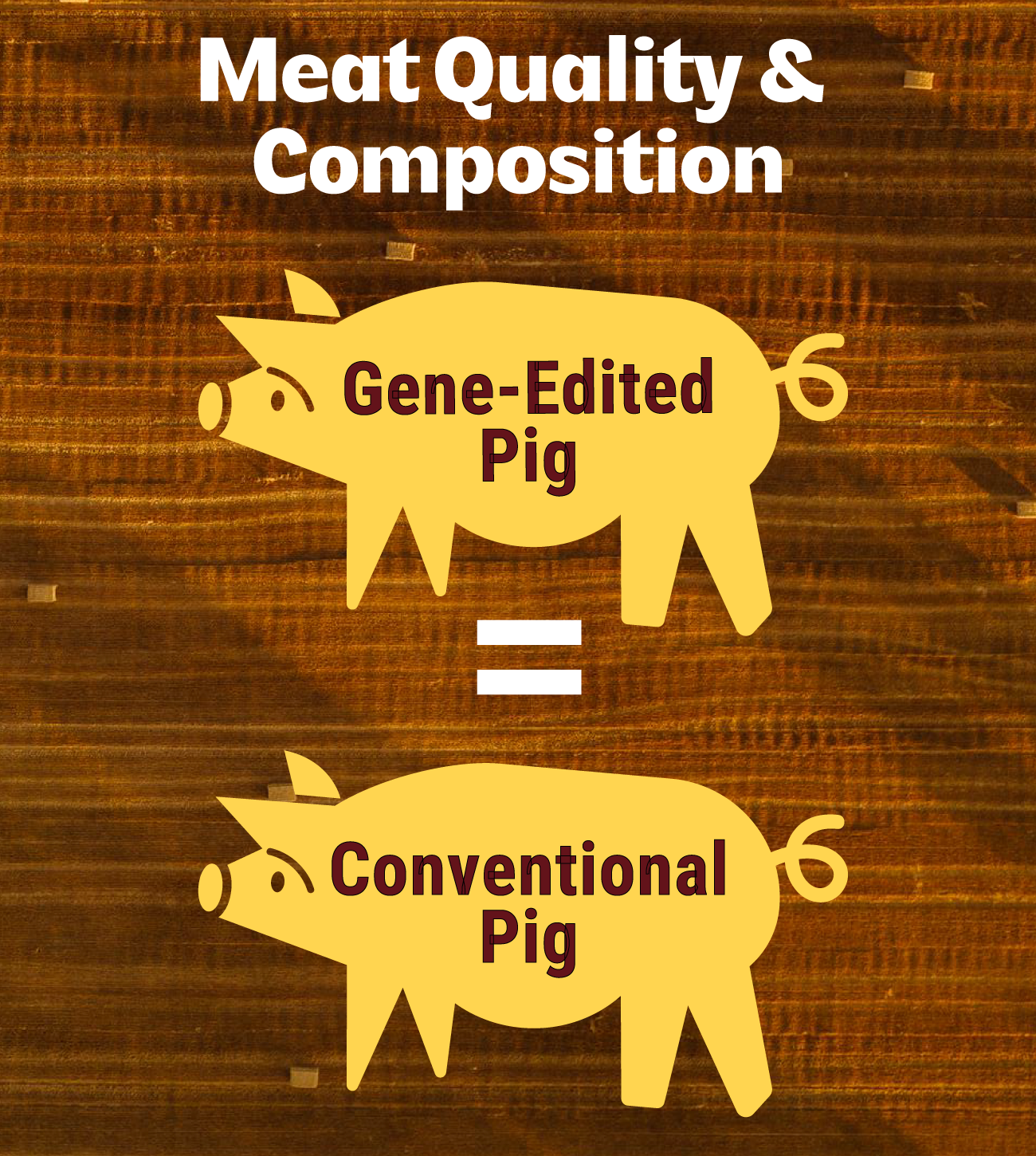
Every country has unique government regulations, biotechnology policies and review processes that companies must follow before they are allowed to sell new foods. These regulatory processes are intended to reassure consumers that the foods they buy, eat and serve their families are safe.
Before PIC can market and sell the PRRS-resistant pig, we must receive either regulatory approval or a regulatory determination from the governments in key pork producing countries.
The regulatory process is intentionally detailed, thorough and can be lengthy.
The U.S. Food and Drug Administration (FDA) and the Canadian government granted approval to PIC for the gene edit used in its PRRS-resistant pig, determining that the technology is safe and effective.
Additionally, the governments of Colombia, Brazil, Argentina and Dominican Republic issued favorable regulatory determinations for PRRS-resistant pigs, meaning these countries have recognized they are not GMOs and will treat them the same as any other pigs.
PIC is working to secure approval for the gene edit used in the PRRS-resistant pig in China, Japan and Mexico, along with other pork-producing countries.

The U.S. FDA’s approval process includes an extensive review of third-party research conducted over several years. The research shows that PIC’s PRRS-resistant pigs grow and reproduce like non-resistant pigs, and the meat quality and makeup are the same.
For example, the researchers reviewed 97 meat quality and meat composition data points and found no statistically significant differences between the gene-edited and conventional pigs.
Pork from PRRS-resistant pigs has quality and nutritional profile as the products you are accustomed to seeing on restaurant menus and grocery store shelves.
